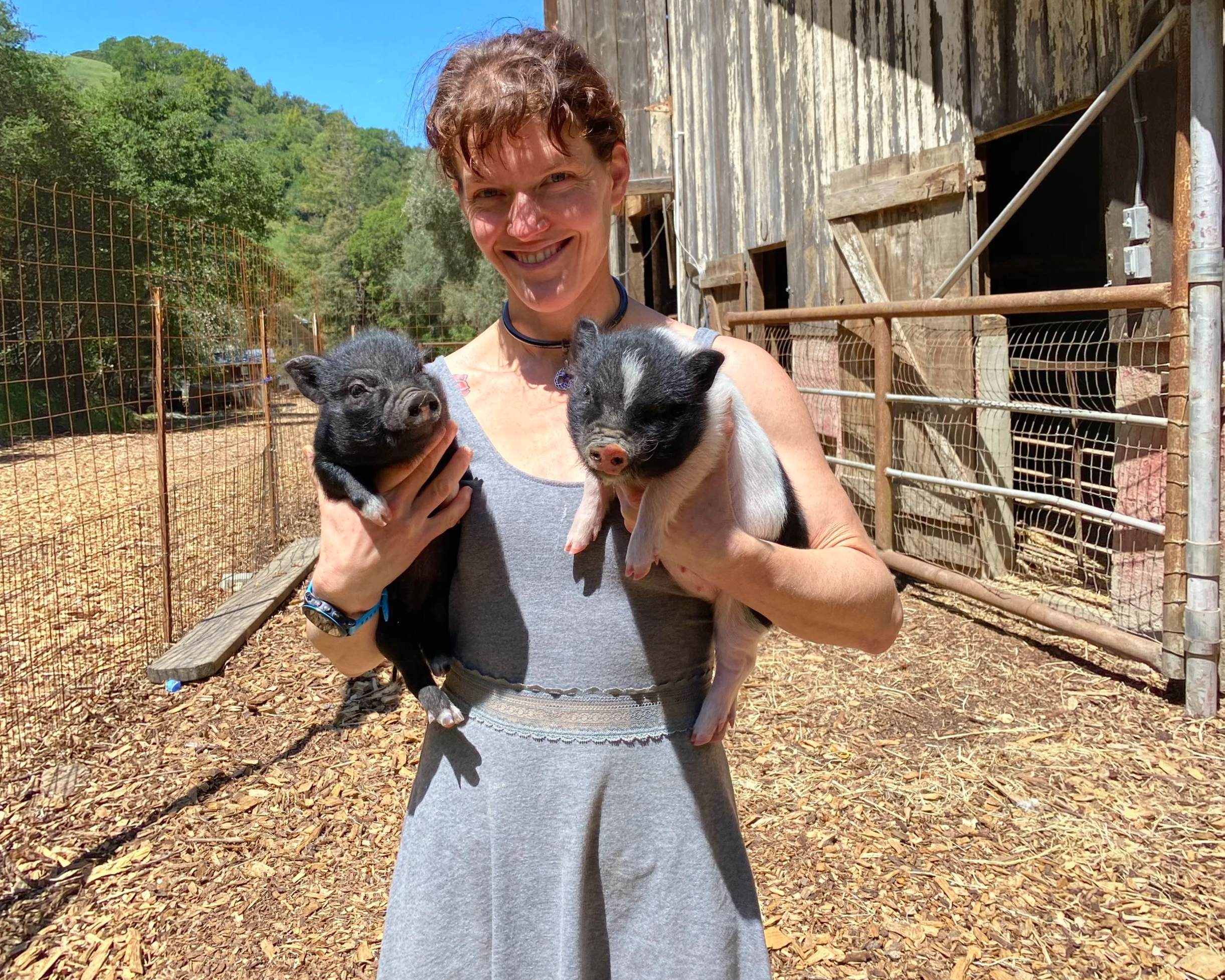Why One Living Sanctuary?
Mission Statement:
One Living Sanctuary aims to move the world closer to peace by building a haven for farmed, domestic, and wild animals where people can come to connect and grow as individuals and community.
Here we rescue animals and give them love, agency and freedom from suffering. The animals are part of our community and are able to experience peace and kindness with humans, while humans can experience deep new relationships with other beings and connection with kindred spirits.
OLS promotes the inherent value and deep connection of all life. We are creating a better world for all beings by fostering a space for individual growth and discovery in support of people working toward more loving kindness, compassion and tolerance in their lives. We support projects which bring more peace to the world through the humane treatment of animals, environmental sustainability and deep interpersonal connections.
We are cultivating a microcosm world of love, harmony, and sustainability for all life.
Our Guiding Principles:
Platinum Rule: Treat all beings as they would want to be treated.
Cultivate compassion and respect for all life through daily practice.
Lead by example, developing and sharing great new ideas and methods to help animals, people and the planet.
To be kind, considerate, authentic and transparent in our relationships and communication.
Vision
One Living Sanctuary serves as a community center for like-minded people to work together to engage in environmentalism, social justice, spirituality, animal rescue, education and outreach.
The Sanctuary provides a home for rescued animals to live out their lives as naturally as possible, enjoy love and connection with humans when desired, veterinary care as needed and to be compassionately freed from suffering when the time comes.
Animal/Human Connection
Animal rescue: rescued farm and some domestic animals are provided with housing and land appropriate to each species. For example, our chickens have a lockable coop for safety at night, and a larger space to roam during the day. People are able to interact with any rescued animals who choose to participate, through guided tours, which educate the public about the lives of the average farmed animal. Our tours allow a chance to combine didactic information with the tangible experience of meeting the animals.
Rehabilitation: injured or orphaned wild animals brought to us are treated and rehabilitated, then released back into the wild when possible. We teach visitors about the value of compassionate care and provide education and resources so that others may gain a better understanding of urban wildlife as important members of our communities and not as pests.
Dr. Faith Albright, our founder and veterinarian, sees to the health of animals at the sanctuary. Species specific and large animals vets in our area provide guidance and specialized care as needed.
Community
Tours: visitors are offered donation-based tours of the sanctuary, meeting rescued farmed animals and learning about our efforts in sustainability and land management strategies.
Volunteers: folks are invited to help us care for the animals, aid with various projects, garden and tend to the land, while learning about our mission and enjoying the company of our rescued residents and the sanctuary land.
Interns: will temporarily live in community at OLS, becoming part of our sanctuary team to care for the animals and tend the sanctuary facilities and grounds. All community members help to support each other and care for the community spaces and meals.
Future Goals
Workshops: One Living Sanctuary eventually wants to offer workshops on compassionate animal rescue and care as well as other topics both in our greater local community and at the sanctuary. Organizations with ethics in alignment with the sanctuary would be able to rent a community workshop space for their own events.
Eco-Retreat: The sanctuary would like to provide sustainable housing options for personal and community retreats: we would start with camping, and expand to offer cabins and rooms that combine sustainability with utility and the aim to provide restorative relaxation and/or active engagement with animals and others.
Health and Wellness: OLS would love to be able to offer massage and hot tub/sauna as well as nutrition courses and wholesome, plant-based food at the sanctuary. Over time, we may work with a healthcare team (e.g., doctor, acupuncturist, chiropractor, nutritionist, somatic therapist and/or other health professionals) to offer holistic, integrative health care on site.


